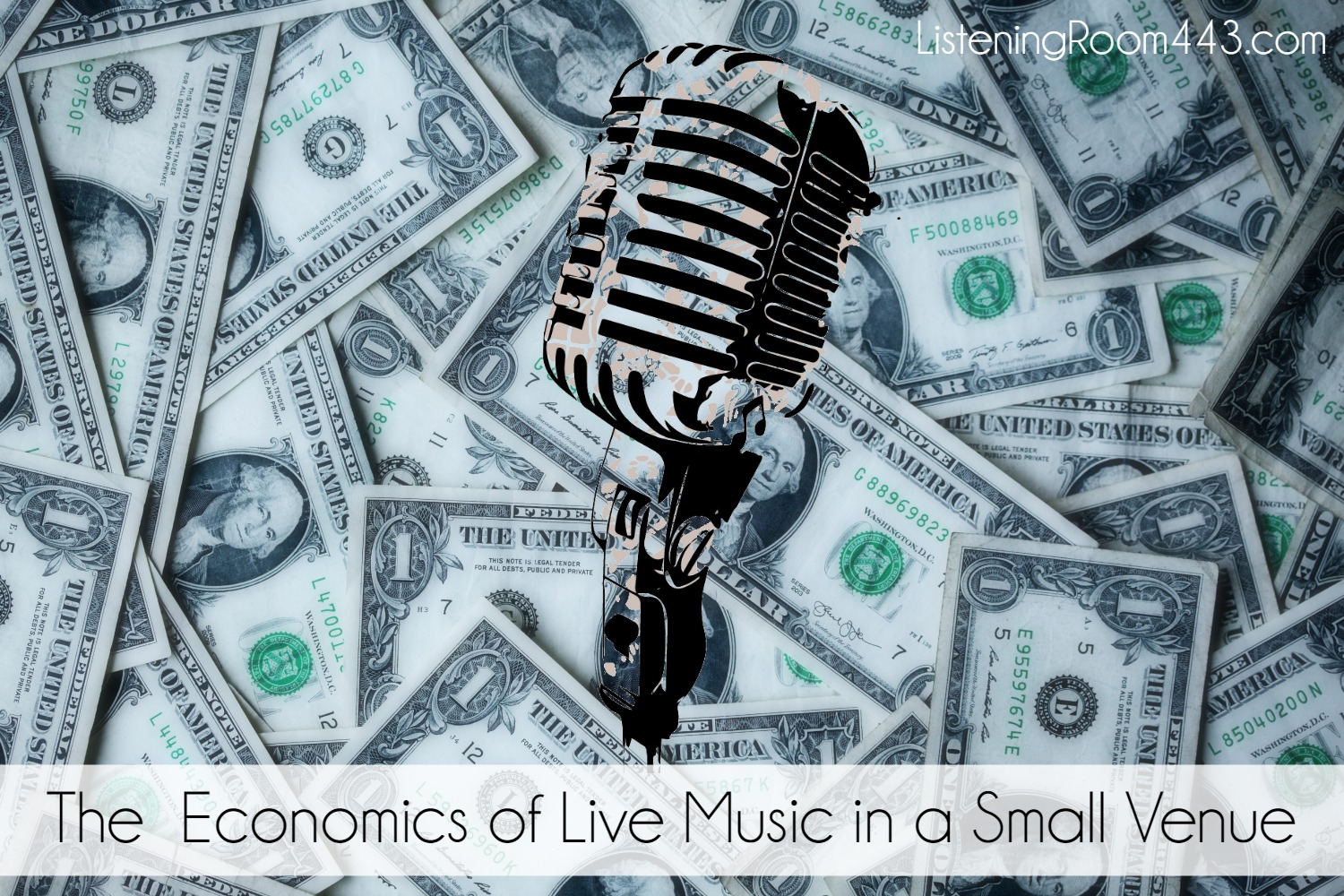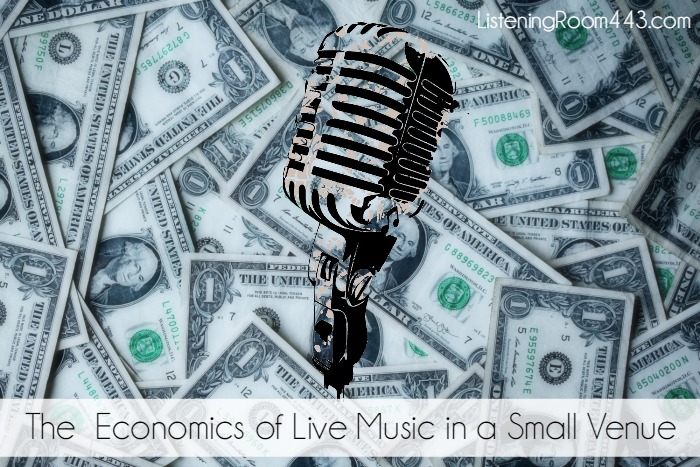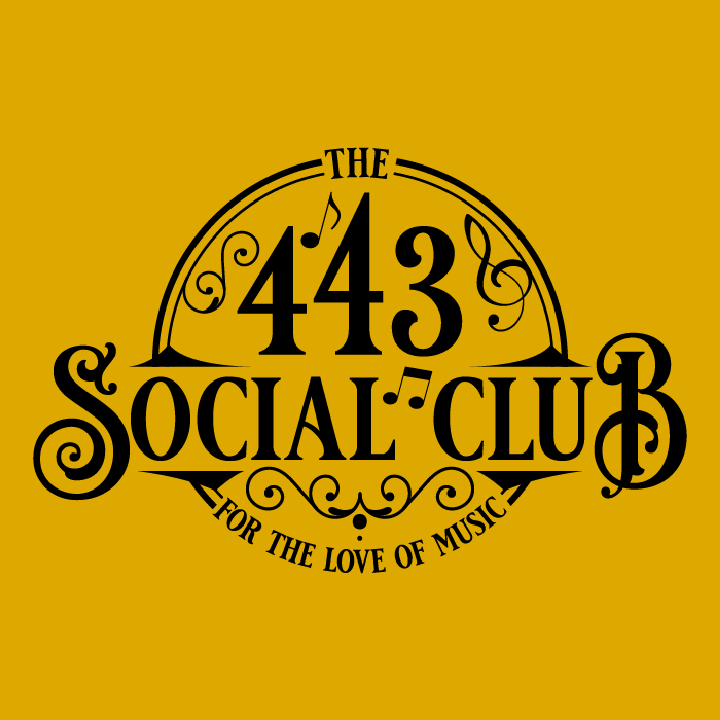
Yesterday I wrote about getting the booking underway for the room, you can read about that HERE.
As I navigate the process of securing touring artists and scheduling local acts and other events, I can’t help but contemplate the tricky nature of this business.
As part of my old marketing business, I sometimes booked bands for the restaurants I worked with. Usually, it went smoothly and handling both sides made it easier for me to get the materials I needed from the bands. Other times it was uncomfortable because the price the bar owner wanted to pay was vastly different from the price the artist wanted to perform.
And honestly, I could sympathize with both sides.
Musicians often feel bar owners are cheap, and bar owners feel musicians are greedy. Neither is true when you break it down.

As someone who spent a lot of time in the hospitality industry, I understand the tight margins restaurants operate on. Making a restaurant/bar successful is a delicate balancing act of a million moving parts, which is why they have a higher rate of failure than any other business.
But, I believe performers should be paid. Not just for their time on a given evening, but for their years of practice, investment in expensive gear and time and money spent marketing, putting out CDs, developing a fan base, etc.
Side Note:
Expecting an artist to play for exposure or tips is positively shameful. If it’s truly not in your budget to pay for a service, then you shouldn’t expect an artist to provide it. Artists who go along with these arrangements are doing themselves and their musical community a massive disservice by perpetuating the idea that it’s acceptable. Would you expect your plumber or accountant to work for tips? They would laugh at you.
Benefits or fundraisers are a different thing, obviously, and so is busking. But let’s dive a little deeper into how it works in a small bar.
Let’s say you own a bar and you want to feature live music. Your favorite singer-songwriter wants $250 to play. He’s a local guy and you don’t charge a cover when you have bands in your establishment. That means the money to pay Joe Songwriter has to be made in drink sales at the bar.
That’s easy, $250 isn’t much in a busy bar, right?
Well…keep in mind that the number you’re trying to hit is not $250. You need to make $250 in profit to pay Joe Songwriter after you’ve covered the cost of your drinks.
It varies depending on which libation you’re looking at, but a reasonable average is about a 75% profit margin or 25% in cost of goods – the raw ingredients in the drinks you’re serving. Some are higher, some are lower.
Now you might be thinking, “Whooooaaaaa….75% profit?!? That bar is raking it in!”.
Not so fast.
Let’s pay Joe Songwriter first. The bar needs to sell about $370 worth of drinks to cover his price. With an average drink price of $6, the first 61 drinks you sell will pay for his services. In a neighborhood bar with cheaper drinks, that number will likely be higher. For a multi-piece band that charges $400, the target is more like $530 in sales or 88 drinks.
88 drinks is a lot…especially for a smaller venue.
What if you have 40-50 people in the bar? I would never be upset about 50 people hanging out and having a good time, it’s a good crowd in a smaller space. But is 50 people enough to support a band without a cover charge or ticket? Probably not.
After the bar sells 61-ish drinks, Joe Songwriter is covered and the bar can begin to chip away at its own overhead. At a minimum, they’ve got payroll + the payroll service fees, taxes, workers comp, business insurance, rent, National Grid, internet, water, trash removal, alarm system, advertising/marketing, a whole roster of expensive annual permits, liquor license, ASCAP, and BMI.
It’s not such an easy decision now, is it?
At 443 we are trying to walk the line between being an artist-friendly venue and keeping our business sustainable. I’m not going to lie, we’re a little anxious about it – it’s a dicey proposition.
I am old enough to remember when there was a cover charge of a few bucks to get in just about anywhere, and I’m not sure why that concept fell out of favor. Entertainment is not free, but here in Syracuse, we’re all accustomed to live music happening without pulling our wallets out. It’s not a coincidence that we have fewer live music venues than ever before, or that many touring artists don’t stop in our fair city.
So…what does that all mean for us?
Well, we’re committed to live music, so we’re trying a variety of different tactics.
- We added the early morning coffeehouse component to help support live music in the evening. We need to maximize our revenue and it doesn’t make sense to let the room sit vacant all day. Plus, we wanted lots of non-alcoholic options for music lovers who don’t drink.
- There are tons of places all over town you can catch a singer performing cover songs for free. We’re not knocking it, we love going out to see our friends play. But becoming yet another one of those venues isn’t going to give music fans a reason to stop by our place, so we’re avoiding that model as much as possible. The local performers we’re featuring are generally the ones who rarely play in town, or it will be a totally different performance from their usual set.
- We are scheduling our shows early, usually 6:30-9:30pm. We don’t want late hours to deter anyone from coming out for a show they are interested in.
- Touring artists and some CNY based acts will be ticketed events because they simply can’t happen any other way.
- Some of our local shows will be free to the customer. We are still paying the artist, obviously, so that means we have to count on our guests to purchase enough at the bar to make that arrangement work. Yes, it’s nice to come out and support a band with your enthusiastic presence and drink water all night. But, it doesn’t help the venue afford the artist – and they may not be back.
- There will be some special events where we’ll charge a $5 cover to defray the guarantee we are giving the artists.
Will local music fans embrace this business model? I honestly don’t know. We will do our best to showcase excellent music, take good care of our performers and shower our guests with top-notch service when they visit. We will market the hell out of it. If this is something the community wants, the community will buy tickets, pay the cover charge, and buy a few drinks.
If it isn’t, it won’t be due to lack of effort on our part…we are doing everything we can to make this venture successful. In a couple of weeks, the fate of the Listening Room at 443 – or at least the live music portion of it – will be in the hands of the community. The response has been overwhelmingly positive, so we are choosing to be cautiously optimistic. 🙂

